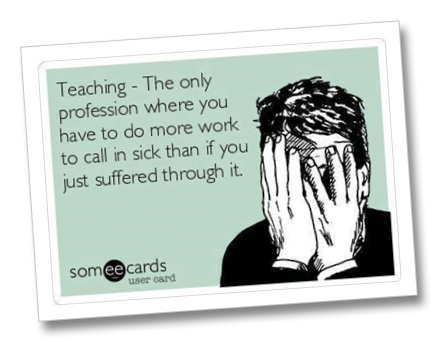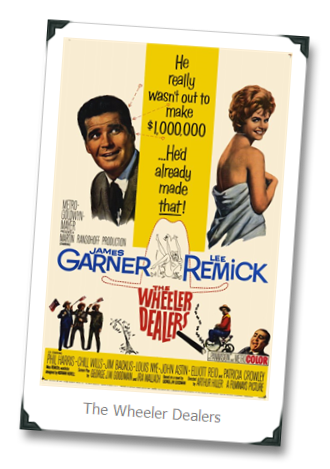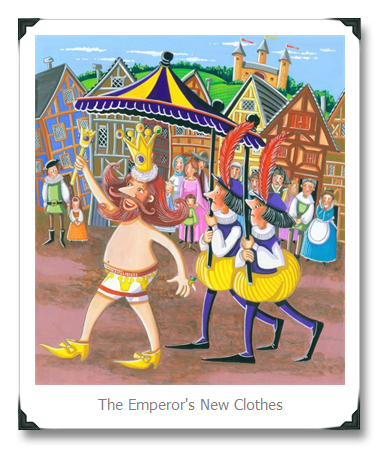Updating Your Facebook Profile Picture Is Not Activism
31 October 2016 • by bob • Rants
I often find it mind-boggling the number of people who seem to think that updating their Facebook profile picture is an effective means of offering support for a worthy cause.
Don't get me wrong, there are certainly times when updating your profile image might "raise awareness" for a lesser-known issue of some sort (like saving sharks from extinction), or to show a sense of solidarity in a time of crisis (like the thousands of updated profile pictures in the wake of the terrorist bombings in France). But for the most part, updating your profile image is a meaningless act.
Here is a perfect example: some people will update their profile image with a pink ribbon in order to "raise awareness" for cancer. But what has this actually accomplished? Perhaps a few people might see the profile picture, but everyone on the planet already knows about cancer. What would be considerably more effective would be to actually do something about cancer. How about volunteering at a hospice? How about organizing a fundraiser for your local hospital? Or at the very least, how about personally donating to the American Cancer Society?
If there is an issue which you are truly passionate about, then you need to do something about it. March in a protest. Write your congressman or congresswoman. Speak out at a town hall. Work with others going door-to-door to promote your position. Organize. Plan. Act. Women's Suffrage and the Civil Rights protests of the 1960s would have gone nowhere if people simply sat at home and updated their Facebook statuses.
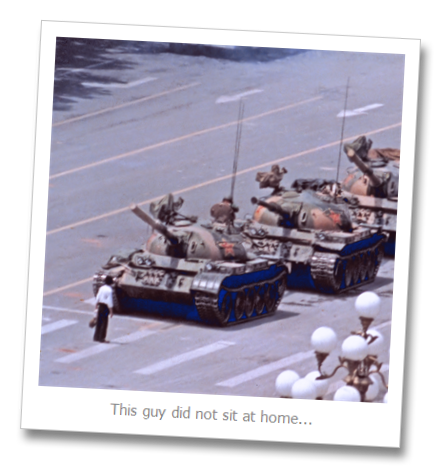
No, updating your Facebook profile does not make you an activist; it makes you a lazy non-contributor.
Some Thoughts About Freedom
29 October 2016 • by bob • Politics, Rants
An acquaintance of mine recently posted the following image to Facebook, which has rapidly become the central repository for all sorts of stupidity:
Just for perspective, I have traveled to other countries where its citizens cannot build a house - ever.
Or drive - ever.
Or go fishing - ever.
Or do pretty much anything they want - ever.
These unfortunate souls often have to work 7 days a week for less money per month than our minimum wage workers make in two hours. But most-importantly, these citizens cannot speak their mind about how messed up their country is - ever.
Unlike the dude who created that meme.
The schmuck who created that image has no idea just how many personal freedoms he actually has; so now he takes his over-privileged life for granted and believes that a few inconveniences in a free society are some sort of bondage.
What an ungrateful idiot.
UPDATE: See 7 Harsh Realities Of Life Millennials Need To Understand for more information; especially point #4.
Stop the Domino Effect of Overreacting
21 September 2015 • by bob • Ponderings
Like many people last week, I was appalled when I read about the treatment of 14-year-old high school student Ahmed Mohamed in Irving, Texas. Ahmed was arrested for bringing what several people thought was a "hoax bomb" to school, despite his repeated assertions that it was simply a clock which he had invented. When I was Ahmed's age, I loved tinkering with electronics, and I brought my own creations to school several times, so I was understandably incensed when I read about Ahmed's plight.
However, there is a big difference between what Ahmed claims to have done and what he actually did. Ahmed did not - in fact - build a clock from scratch. As multiple websites and YouTube videos have shown, all Ahmed did was remove an existing clock from its plastic case and mount the unmodified electronics inside a pencil box. As someone who actually built things from scratch when I was Ahmed's age, this was insulting to me, because it means that Ahmed is a fraud. While his motives are unclear, the fact is undeniable that Ahmed actually did bring a hoax to school; but he didn't bring a hoax bomb, he brought a hoax invention.
As I looked at photos of the clock which Ahmed was supposed to have built, I couldn't see where he had done anything to merit "inventiveness." The jumble of wires appeared largely intact to me; the only thing which seemed out of place was the 9V battery connector, so I wondered if Ahmed had soldered a battery connector to the main board after the transformer in order to allow the clock to work when it wasn't plugged into the wall. If so, that would have been a cool idea. But my theory proved untrue when it was later revealed that the 9V connector was the built-in battery backup for the clock memory in the event of a power failure. So once again, Ahmed appears to have done nothing to warrant all of his new-found fame and accolades. (By the way, what is truly embarrassing about this situation is that Make Magazine, which is one of my favorites, completely failed to notice that Ahmed did not actually build his own clock. That's a really big fail, guys. You should have known better.)
I realize that everyone who pursues a career in electronics has to start somewhere, and the disassembly of an existing electronic product is the perfect place for Ahmed (or anyone else) to start. When I was a teenager, I was an avid electric guitar player, so I started out with electronics by taking apart existing guitar effects to see how they worked. When I didn't understand something, I went to the library to check out books about electronic theory, and I dutifully studied the subjects which were foreign to me. Eventually I moved on to repairing other people's broken guitar effects, and finally I moved on to building guitar effects from scratch. (Craig Anderton was my hero.) So when I brought a creation to school, it was something which I had actually created. But even more than that, when I was a little older than Ahmed I actually created a digital clock from scratch by wiring together all of the parts by hand. That is a far cry from what Ahmed did; Ahmed took someone else's work, slapped his name on it, and asked to be recognized as its creator. What Ahmed has done constitutes fraud. Period.
Nevertheless, even though Ahmed is a phony as an inventor, at least in this situation, he probably did not deserve to have been arrested for bringing his hoax invention to school. I will admit that the jumble of wires and the large LED screen certainly resembles a bomb which you might see on a low-budget television show, so I should at least acknowledge the good intentions of the safety-minded school officials who thought the situation was worth investigating. (Note: Can you imagine the uproar if a student had actually brought a bomb to school and the school officials did nothing about it?)
However, once the facts of the matter were made clear and everyone knew that Ahmed had not actually brought a bomb to school, the academic and police officials overreacted, and Ahmed was humiliated as he was handcuffed and paraded before his peers as he was led away by the police.
But the overreactions didn't stop there, because everyone in the community - myself included - quickly overreacted to show our support for Ahmed. Many people were angry at the close-mindedness of the investigating officials; we all wanted to take this young David's side as he took on the Goliath of insensitivity. "@IStandWithAhmed" and "#IStandWithAhmed" became instant Twitter sensations. Mark Zuckerberg invited Ahmed to drop by Facebook for a meeting. Microsoft sent Ahmed a treasure trove of goodies to encourage his inventiveness. The Google Science Fair invited Ahmed to drop by and bring his clock. And President Obama asked Ahmed to bring his clock to the White House.
I have come to realize that these overreactions are equally as wrong as the original overreactions by the school officials; perhaps even more so - because Ahmed is being heavily rewarded for being a charlatan. Everyone needs to step back and think about this for a second: if Ahmed brought his clock to Facebook or the Microsoft Garage or the Google Science Fair, he would be a laughingstock, because his "invention" is a fake. When Ahmed is done being praised by the press and exalted by social media for being the underdog in this story, sooner or later he will have to stand in a room surrounded by people his age (or older) who are actually creating cool things from scratch. When that happens, Ahmed desperately needs have something better to show than an off-the-shelf digital clock that he stuffed into a pencil box, because real teenage inventors will immediately identify him as an imposter.
So I have changed my opinion in this matter from being upset over Ahmed's treatment by the authorities to being upset over Ahmed's treatment by the community, because we are rewarding his dishonesty. If Ahmed had copied the answers for an exam from one of his classmates, everyone would immediately recognize him as a cheater. Yet that is essentially what Ahmed is doing with his clock; he is taking someone else's creation and claiming to have created it, and therefore he is being deliberately deceitful. And through our collective overreactions our country is sending a terrible message to the youth of Ahmed's generation: "If you lie to America, not only will you get away with it, but you'll win big prizes and get an invitation to meet the President."
How Hippies Destroyed America
30 January 2014 • by Bob • Politics, Rants
Someone recently posted the following image on Facebook, and even though I know they were simply trying to be amusing, I found it highly offensive... (for reasons which I will explain in a moment).
Unfortunately, posting an image such as this reveals how little someone actually knows about how much damage "Flower Power" and the so-called "Love Movement" did to America. While hippies may have been right about some things, (like environmental responsibility and ecological activism), they were dead wrong about most others. Here is a brief summary of a few of the lasting effects that the single generation of 1960s-era youth had on society: an out-of-control drug culture, the unchecked rise in numerous sexually-transmitted diseases, hundreds of thousands of PTSD cases of veterans traumatized by counter-culture attacks, and the embarrassment of our nation in the eyes of the rest of the world.
When you follow the emergence of the hippie movement, it is one that outwardly preached living in harmony with all of society, and yet inwardly its actualization was one of extreme selfishness and unbridled, destructive power. Timothy Leary's invitation to "Turn On, Tune In, Drop Out" encouraged a generation of youth to abstain from any semblance of civil and moral responsibility in favor of seeking personal, self-centered desires. In the span of a few short years, the hippies managed to negate nearly all of the hard-won victories of our country's "Greatest Generation," (those who banded together to survive the Great Depression and win the Second World War). Our country descended from an industrious world leader populated by hard-working, family-oriented citizens to a vicious brood of misguided, distrustful, lazy, addicted, self-worshippers.
Like much of the hippie movement, the so-called "Summer of Love" is something of an oxymoron, because it achieved the opposite of its intended goals. When thousands of lost youths descended on the Haight-Ashbury district of San Francisco, they did so with bold proclamations of free love, uninhibited creativity, and peace-for-all. Yet the size of this group collapsed the infrastructure of the local area, which was unprepared to deal with the sudden arrival of thousands of drugged-out, socially irresponsible vagrants. This should have been one of society's first warnings about the pure selfishness of the hippy mindset, but this event was largely ignored by anyone except other teenagers and twenty-somethings who were tired of listening to their parents telling them to grow up, get a job, and contribute something to society other than folk songs and clouds of pot smoke.
One of the rallying cries for the hippie movement was a general objection to the Vietnam War, and while I agree that anyone in their right mind should oppose war as best as possible, the hippies reacted in the worst possible way. Instead of gathering peacefully across the country, hippies engaged in numerous cases of what would now be referred to as "Domestic Terrorism." In their naïveté, thousands of youths openly proclaimed their support for Marxism/Leninism/Communism to overthrow the government of the United States, even though none of these impressionable youths had ever lived under such oppressive regimes, and many of these same degenerates would not have lasted a year if they had emigrated to the USSR.
Please do not misunderstand me - I fully support the right to peaceful assembly and vociferously objecting to war, both then and now, but there are proper ways to do so - and conversely, there are improper ways to be avoided. For example: hippies used to call my mom in the late 1960s while my dad was stationed in Vietnam, and they would pretend to be the Department of the Air Force calling to inform my mom that my dad had been killed in combat. This happened many, many times - and she would hug my brothers and me as she wept inconsolably for hours; my mom's life was probably shortened by several years due to insufferable grief caused by the heinously evil and unnecessary actions of these particular vermin who called themselves hippies.
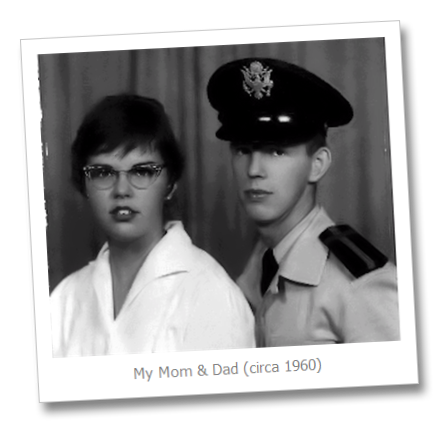
There are two things that can be learned from the hippies' response to the Vietnam War:
- War is a terrible thing which motivates some people to do terrible things.
- The way some people choose to protest war is far worse.
Tragically, my experiences were not isolated incidents; the history of the Vietnam War on the home front is rife with examples of the complete failure on the part of the hippy movement to make their protests known while still treating veterans returning from battle like fellow human beings. (Many of these veterans were draftees instead of volunteers, and therefore they had no say in their years of military service.)
Some of the most-damaging aspects of hippie culture were the concepts of "Open Marriages," "Free Love," etc. In their efforts to rid themselves of any vestige of what they believed were their parents' outdated sensibilities, hippies managed to convince themselves that committed, monogamous relationships were a thing of the past, and they substituted "Do What Feels Good For You" casual relationships in their place. There is an age-old axiom which states, "Why buy the cow when the milk is free," and in keeping with that notion, the men of the hippy generation managed to convince the women of that era to abandon their morality in what was probably the most-condescending deception of women in the history of the United States. To quote Steve Martin, "Free Love ... was the single greatest concept a young man has ever heard. This was a time when intercourse, or some version of it, was a way of saying hello. About three years later, women got wise and my frustration returned to normal levels (Martin 2007, 100)." Despite the ill-guided assertions that the hippy movement gave birth to the Women's Liberation movement of the following decade, male hippies treated their female counterparts little better than objects for their own, self-desires. As a direct result, a conflagration of sexually-transmitted diseases spread across the country like a raging inferno, divorce rates skyrocketed, and millions of children were forced to grow up in single-parent homes due to the hippy-based philosophy that marriages need not be permanent.
Ultimately the hippy movement was a complete failure of society on both sides of equation: the hippies failed to behave in any fashion which reflects the better ideals of humanity, and the United States' government failed to effectively respond to the subculture which infested much of the Baby Boomer generation. Our nation still bears numerous scars from societal wounds inflicted by the selfish and amoral youth of the 1960s, and history will eventually reveal that their actions irrevocably damaged the fabric of our culture and hastened the demise of our once-great country.
On a personal note - forty-five years have passed since the time when my family was individually targeted and tormented by faceless cowards who publicly preached love for their fellow man while privately living for their own selfish gains. I have neither forgiven nor forgotten the traumatic pain that these so-called "Peace Loving Hippies" caused my family and our nation to suffer.
Martin, Steve. Born Standing Up: A Comic's Life. New York, NY: Simon & Shuster, Inc., 2007.
Being Sick in the Military
13 October 2013 • by Bob • Military, Rants
One of my family members posted the following picture to Facebook:
I'm not a teacher so I can't speak about the veracity of that statement, but nevertheless I felt compelled to post the following response:
"Not true - when you're in the military, it's much worse. Here's just one example from my years in the service:
"I had food poisoning and I spent the night throwing up so much that I lost 10 pounds in one day. (Seriously.) But the military owns you, so you can't just call in sick. Despite feeling like I was about to die, I had to drive 30 minutes to the military post and show up for a morning formation, where I stood at-attention or at-ease for a 30-minute summary of the days' news and events. After that formation ended, all of people who wanted to go on sick call were ordered to fall out to a separate formation, where I had to describe my symptoms to the NCOIC, who was tasked with determining if anyone should actually be allowed to head to the clinic or go back to work.
"Bear in mind that the clinic that I was sent to was not a hospital where I would see an actual doctor, but a tiny building where no one had any formal medical education. For that matter, sick call is a horrible experience where you eventually get to meet up with a disgruntled E-4 who's sorry that he volunteered for his MOS and generally wants to take out that frustration on every person who shows up; since he has no formal education, he is only capable of reading symptoms from a book to diagnose you, so it's a miracle that more deaths do not occur in military clinics due to gross negligence. (Although I have long stories about deaths and permanent injuries that were the direct result of misdiagnoses in military clinics, but I'm getting ahead of myself.)
"Before I got to see said disgruntled E-4, I had to sit in a waiting room for around an hour, so by the time I was finally sent to an examining room I had been on post for several hours and it was probably approaching noon. The E-4 was able to figure out that I was seriously ill pretty quickly - all of the vomiting was an easy clue. He decided by taking my blood pressure that I was severely dehydrated, (duh), so I spent the next few hours lying on a cot with IV bags in my arms until he decided that I was sick enough to be put on quarters for the rest of the day and I was sent home.
"By the time that I finally arrived at [my wife's and my] apartment it was sometime in the late afternoon, which is when the normal workday would probably have been over for most civilians. But when you're in the military they try to make your illness so unbearable that you'd rather show up to work, so here's the worst part: when you have something like the flu that lasts more than a day, you have to repeat the process that I just described until your illness has passed or you are admitted to a hospital because you are not recovering. Of course, having to sit in a clinic with a score of other sick people means that everyone is trading illnesses, so you have this great breeding ground of diseases in the military, which undoubtedly helped cause a great deal of the military fatalities during the great influenza outbreak in the early 20th century.
"So being sick as a teacher may be awful, but trust me - you could have it a lot worse."
As a parting thought, there may be some qualified people in Army medicine, but I have always pointed out that people who graduate at the top of their class in medical school do not become Army doctors; they take prestigious positions at world-class hospitals. Who usually winds up as military doctors? Medical students with barely passing grades and large student loans to pay off.
Given a choice between a doctor with a 4.0 GPA from Harvard Medical School or a doctor with a 2.5 GPA from The Podunk Medical Academy for the Emotionally Challenged, who would you pick? Well, when you're in the Army, you don't get to pick. And unless you're a general, it's usually the latter of those two choices.
I have always summarized Army medicine as follows: "You get what you pay for when you see an Army doctor; you pay nothing, and you get nothing."
The Eye of the Beholder
02 July 2013 • by Bob • Art, Rants
I have a very easy measuring scale for determining what I consider art: "If I Can Do It, It's Not Art." This may not seem like a complex rule to live by; but when you consider it, it's rather profound. There are a lot of people who will pass off their work as art even though it is actually a bunch of junk.
I have been to a lot of art museums because - I actually like art. But I have witnessed a lot of pieces that are not art; they are elaborate hoaxes by conmen who rebrand their particular style of garbage construction as creative genius.
For example, when I went to the the Neue Pinakothek in Munich, Germany, one of the paintings hanging on the wall was a large canvas where the artist had painted a one-inch red dot in the center of the canvas. This was titled "Red Object #2," or maybe "Red Object #3..." I can't really remember. The point being that this painting was obviously part of a whole study the artist had done on... red objects. Of course I'm looking at this creation and I'm thinking, "I can do that; I could have done that with a crayon."
I've gone to the Seattle Art Museum several times, and I find it absolutely amazing what some people consider 'art'. Now don't get me wrong, there are some amazing pieces of artwork inside the Seattle Art Museum. But there was one canvas where the artist had simply painted an already white canvas with the color white. That's it - just white paint; nothing else. Once again I'm thinking, "I can do that."
At a different museum that I went to in Germany, the Lenbachhaus, it was very evident that an artist had stood at the end of several canvases that were lying on the ground and simply threw buckets of red paint at them. Once again, I can do that - it's not art.
I realize that the perception of art is subjective, and there is a lot of truth to the statement that "Beauty is in the Eye of the Beholder." But I always fall back on my personal standard that if it's something that I can do, it's not really art - it's just what people pass off as art. (For an example of how I think most modern artists come up with their ideas, you need to watch the movie The Wheeler Dealers with James Garner and see how the character Stanislas creates his artwork.)
Another perfect example of the ways in which we think about art can be typified by an experience that I had when I visited the Kimbell Art Museum in Fort Worth, Texas. The museum was presenting an exhibition on impressionism, and I'm a big fan for many of the classical French impressionists: Renoir, Monet, etc. During my visit I entered one of the rooms, and there was an enormous painting by Gauguin hanging on the wall. I'm not a big fan of his artwork; however, I at least consider it art because I can't do what he does.
But as I analyzed this particular painting, I was thinking to myself, "I just don't get it; he only used four colors." I started to think about this painting based on my personal scale; I could have done this, so it can't be art. I (embarrassingly) spent several minutes studying this piece, and I tried hard to determine what it was about this painting that other people can see and I must be missing.
It's like the story of The Emperor's New Clothes; at some point you begin to worry what's wrong with you. If everybody else can see it and you can't, perhaps it's a character flaw. Maybe you're just not cultured enough. And this was the mindset that I had while I was wasting away my afternoon studying that single piece of art.
After I had been standing there for 5 to 10 minutes, a ten-year-old boy entered the room with his mother in tow. He took one look at the painting, laughed, and exclaimed loudly, "That's crap!", and then he walked off.
At that point I realized that I had been duped. I learned that I needed to stick to my instincts and measure every piece by my personal standard that if I can do it, it's not art. This philosophy actually helped me enjoy the rest of the day at the museum. I could walk into a room, I could look at a Renoir and say, "Now that's a piece of art." Or I could look at another Gauguin and say, "That's crap."
The Decline and Fall of the American Empire
17 September 2011 • by Bob • History, Politics
When you study history, you are invariably introduced to Carroll Quigley's seven stages in The Evolution of Civilizations. In chapter 5 of his book, Quigley describes the seven states in the history of a civilization; these are:
- Mixture: The mixture of diverse, smaller societies to form a unique, larger whole.
- Gestation: The gestation of that large society, specifically in the development of a method for accumulating an economic surplus and investing it in methods of expansion.
- Expansion: A period of vigorous expansion in population, territory, technological competence, wealth, knowledge, etc.
- Conflict: A period of major conflict between societal elements or geographical areas within the civilization.
- Empire: The development of a universal empire ruling over the entire civilization, which far from being a golden age represents a precursor to decay and collapse.
- Decay: The decay of the civilization as exemplified in the ossification of institutions and structures within the empire.
- Collapse/Invasion: The collapse of the civilization, usually through invasion by a younger civilization that is in the expansion phase.
Every great civilization has gone through this formula - with no exceptions.
From my perspective, the history of the United States has emerged in the following way:
- Our Mixture phase was pre-1750s as European settlers began to arrive and colonize the East Coast.
- Gestation followed the 1750s through the early 1800s as the colonists won their independence from European rule and began to establish a new nation.
- Expansion was from the early 1800s through the 1860s as the new nation pushed west toward the Pacific Ocean.
- Conflict was from 1860s through the latter 1890s as the United States grappled with the Civil War and its aftermath.
- Empire was from the early 1900s through the latter 1950s as the reunified United States fought a series of World Wars and established itself as a dominant world power.
- Decay began in the late 1950s and early 1960s as the generation born during the post-WWII Baby Boom spat on the prosperity that had been fought for and freely given to them, and all vestiges of ethical and moral standards were removed from public education. This period was marked by dramatic rises in crime rates, drug proliferation, corruption, divorce, unemployment, abortions-on-demand, corporate greed, and worst of all - the political ineptitude which prevents anything from being done about it.
According to Mr. Quigley's formula, all that the United States have left to face are Collapse and Invasion; civilizations do not recover once they have entered the Decay phase.
What is tragically ironic is that the people who vociferously claim to be trying to save the United States, namely Progressives and Liberals, are actually doing the most damage. As Quigley illustrates in his book, when members of a civilization become so preoccupied with arguing about what they perceive are their "rights" instead of contributing to society and adhering to an ethical set of standards or morals, the fabric of civilization unravels, and eventually implodes as an emerging civilization invades and conquers.
In this present day and age, people are rushing headlong into their inevitable demise; all the while they are wearing blinders which prevent them from seeing what is obvious to the less-outspoken of their peers. It is a sad manifestation of The Emperor's New Clothes; and even though the irony is missed by those who are too foolish to see themselves as members of the deceived, future generations will have the perspective granted by history with which to judge this time period with impartiality (and thereby with greater accuracy).
Several hundred years from now, historians of that coming era will look back with amazement as they analyze how the American civilization was ripped apart by the selfish desires of those who claimed to be acting in the best interests of society.
In closing, I think the rock group Rush expressed that sentiment quite well in their song "A Farewell to Kings":
A Farewell To Kings
When they turn the pages of history
When these days have passed long ago
Will they read of us with sadness
For the seeds that we let grow
We turned our gaze
From the castles in the distance
Eyes cast down
On the path of least resistance
Cities full of hatred, fear and lies
Withered hearts and cruel tormented eyes
Scheming demons dressed in kingly guise
Beating down the multitude
And scoffing at the wise
:-(
Domestic Terrorists Come in Many Forms
11 November 2005 • by Bob • Military, Opinion
As an honorably-discharged veteran, it should come as no surprise that an opinion piece with a title of "Why America needs to be Defeated in Iraq" would catch my attention. When I first read this ludicrous pile of drivel from a gentleman whom I shall henceforth refer to as "
After a bit of time had passed, I pondered more about the context of
Mr. McVeigh's vicious manifestation of domestic terrorism was responsible for the deaths of 168 innocent men, women, and children. However, for Mr. McVeigh, those people's fates were secondary to his cause. He believed that his principles were more important than his victims' lives. In the same way,
On the one hand,
History has had more than its fair share of sociopaths who fail to take responsibility for their murderous actions, and
It is ironic that
To be clear, I do not mind when someone exercises their freedom of speech. I do not mind when someone protests the war. (I have my own misgivings about the directions we are taking - or not taking.) I do not mind when someone calls the President a "war-monger." I do not mind when someone wants our troops out of the Middle East, and organizes a
However, I damn sure mind when some hypocritical,
I'll get off my soapbox now.
UPDATE: This post is one of several that I had written that I later discovered had never been set to "public."



